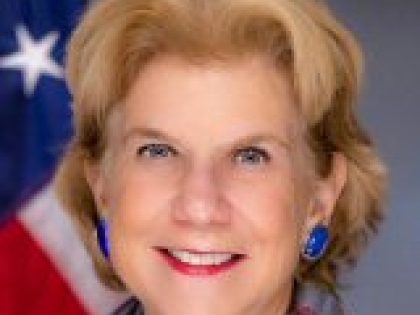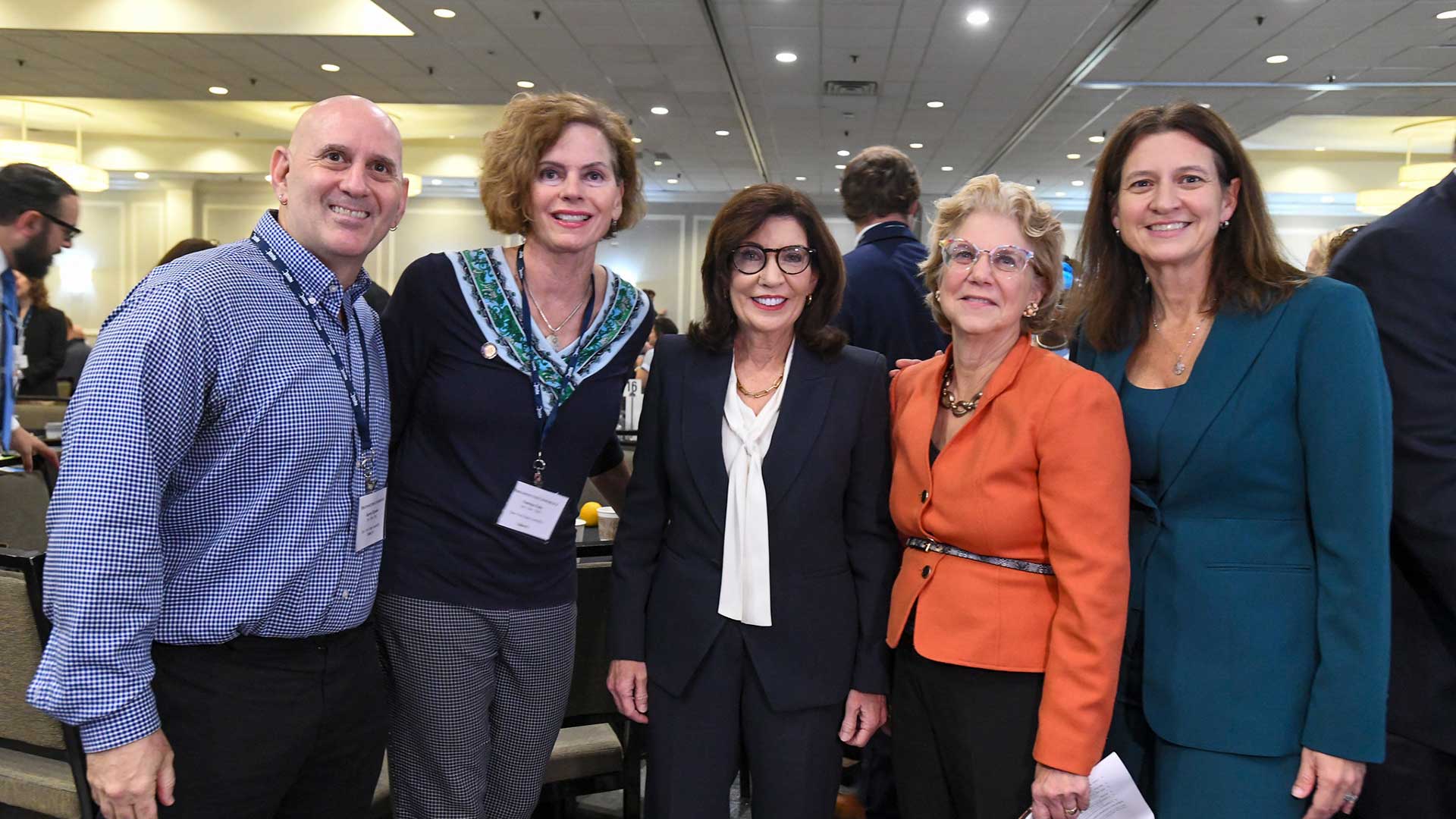
NYSUT: Overwhelming evidence presented at Disconnected leads NYSUT to call for statewide cellphone ban
Molly Belmont
September 27, 2024

Caption: At Disconnected conference, policymakers agreed that more still needs to be done to protect our children from the harms of being overconnected. Left to right: NYS Assemblymember Harvey Epstein, NYS Assemblymember Pat Fahy, NY Governor Kathy Hochul, NY Senator Shelley Mayer and NYSUT President Melinda Person.
Nearly 500 educators, parents and students came together Friday at the “Disconnected” conference to find solutions to the ongoing problem of cellphones and social media in schools.
After the summit, based on mountains of data as well as real stories of harm inflicted by cellphones and social media, NYSUT took action and passed a resolution calling for a statewide policy restricting personal devices for the length of the school day.
“Those of us who are in schools everyday see that the constant use of personal electronics — not just phones, but earbuds, watches and other distractions — are impacting our students’ ability to focus, to connect with their fellow students, to be present in reality and to engage in authentic learning,” said NYSUT President Melinda Person.
During the conference, educators heard from policymakers, healthcare providers, and law enforcement, who described the perils of being overconnected to devices.
Gov. Kathy Hochul, who has been visiting schools as part of a statewide listening tour about cellphone policies, shared her goals for the future.
“When it comes to the school day, I want our kids to be kids again,” Hochul said during the conference. “I want them to talk to each other in the hallways ... I want them to communicate during lunch time. I want them to develop the interpersonal relationships that are not occurring right now.”
Earlier this year, New York educators rallied around two state bills, the Stop Addictive Feeds Exploitation for Kids Act and the New York Child Data Protection Act — the bills were passed with bipartisan support and Hochul signed the bills into law in June.
Friday, policymakers acknowledged that more still needs to be done to protect our children, and they argued for greater regulation of Big Tech companies and stiffer financial penalties for companies found liable.
“Social media companies are not going to do this on their own. Cellphone companies are not going to do this on their own,” said state Assemblymember Nily Rozic. “We, through lawsuits or national legislation, but certainly at the state level, have to push for policies that actually impact our kids because they’re not going to move without that.”
“Credit to all of us in the legislature and the governor for ensuring that we took this step – first in the nation – to really challenge these companies to stop making money off our kids and let them return to life as it should be,” said NYS Sen. Shelley Mayer, Education Senate Chair. She noted that federal legislation to protect children from social media companies was the next step. “We have more work to do. We’re not finished.”
When it comes to cellphones in schools, educators have long favored a statewide policy restricting cellphone use, on the condition that enforcement does not fall to teachers, and costs of implementation are not borne by districts.
During a recent survey, 93 percent of NYSUT members voiced support for policies that prohibit the use of cellphones and smart devices during instructional time, and 85 percent supported banning them for the entire school day, provided there were approved exceptions for students for health or instructional purposes.
“I’ve always been a proponent of limiting technology in the classroom,” said Diana Giffune, president of the Oneida County BOCES TA. “I do think schools can’t afford to keep being the bad guy though. We need help from the governor’s office or SED to make these regulations.”
The NYSUT resolution provides structure for policymakers. The resolution asks that the policy be “bell to bell,” that it be designed locally, and that it be enforced equitably. The NYSUT resolution cited overwhelming evidence for the policy, including cellphones’ impact on mental and physical health – a topic healthcare experts catalogued in detail during the conference.
“Students are struggling to talk to students, talk to adults, problem-solve how to navigate social situations, how to look people in the eye, and just coping with the world around them,” said Nick Harris, Ph.D., a school psychologist at Guilderland High School and a member of the Guilderland Teachers Association. “Most of the time, our students are reporting to us that whatever site they’re on, whatever they’re doing, they’re just getting more depressed, more anxious and more distracted.”
In addition to hearing from a range of experts, conference participants also joined in tabletop discussions about screen addiction, cyberbullying, online predators, and student isolation.
“It’s going to take a really long time to understand how these devices are rewiring our kids,” said Matthew Branford, an English teacher at Middletown High School and vice president of the Middletown TA. “I feel like we’re watching a slow-motion car crash.”
Share this Article or Press Release
Newsroom
Go to NewsroomI-95 Upgrade: $86.7M Project Kicks Off in Westchester
August 17, 2025
